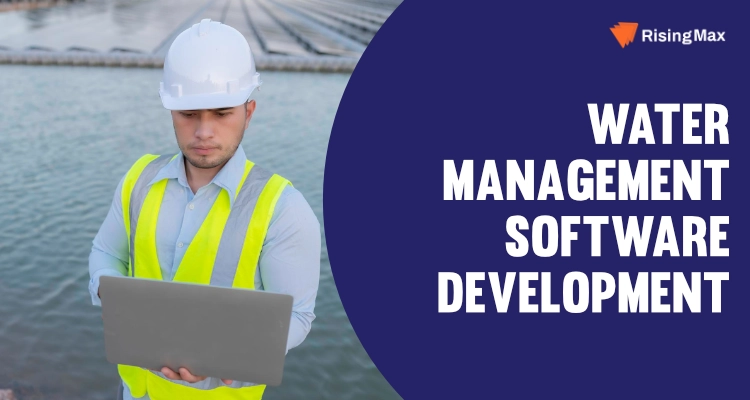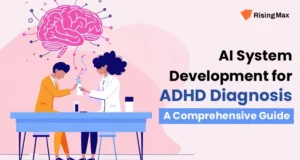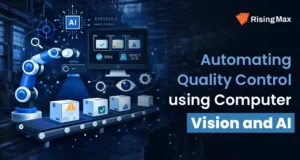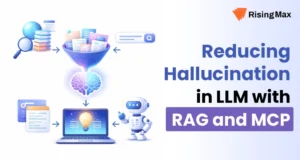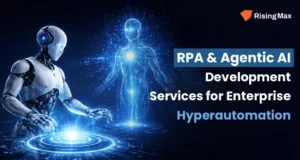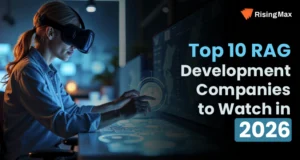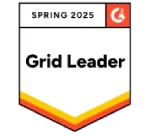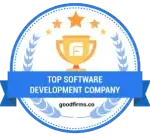The world is currently facing the issue of water scarcity, and UNICEF reports that by 2025, half the world will be without water. To address this issue, various environmentalists are looking for solutions, and they have found IoT water management to be the solution. The IoT water management system helps manage the highest quality of water and allows you to safely handle water disposal. The water management business is expected to reach $53.6 billion by 2031, and this industry will generate substantial profit margins for its investors. This is an excellent opportunity for companies looking to invest in this industry. This blog discusses features, functions, and the steps to developing an IoT water management system.
Reach out to Our Team at Risingmax Today
let’s embark on the journey to develop a iOT water management system.
Overview of IoT Water Management System
An IoT water management system judiciously preserves water resources and monitors water-related equipment like pumps and pipes.IoT-enabled water software also uses sensors, water meters, and other devices linked to mobile phones and web apps to efficiently manage the water supply, check water quality, and detect water pollution.
Commonly Used Devices in iOT Water Management System: We Integrate With Web and App.
Our team integrates the following devices into the IoT-enabled water management software:
- Smart Meters: Smart meters are internet of things that directly transmit data about water and connected sensors to local smart meter gateway and from there they aggregate the information to utility meters. Then they further send the collected information to the cloud for analysis. So , the businesses don’t have to check all the information manually.
- Leak Detectors: IoT leakage detection system predict leaks using algorithms for zone identification and they have integrated sensors for detecting leakages .
- Sensors: Sensors collect data related to water quality and send them to cloud based devices for further analysis.
- Irrigation Controllers: Irrigation controllers operate irrigation systems and set their frequency.
- IoT Gateways: The Internet of Things is a server between IoT devices or sensors and the Internet or cloud. They gather data, processes and filter data transmitted by IoT devices.
Benefits of IoT Water Management System
The IoT in the water management system assists businesses in efficiently managing water resources and improving efficiency. Some significant benefits of integrating IoT devices into your water management software are here.
- Real-Time Analysis: IoT-enabled devices have many integrated sensors that help them assess the use of various water resources. These devices can collect data, which can be used to encourage users to use water resources carefully.
- Reduced Equipment Maintenance Cost: Attaching the IoT to devices such as pumps, tanks, and treatment plants can help reduce maintenance costs through techniques such as monitoring and automation.
- Reduced Risks: Our developed IoT incorporation in the water management software enables businesses to collect and analyze data, which you can use to forecast issues in advance and form better decisions.
- Automation Process and Reduction in Human Use: The Internet of Things can automate various procedures and reduce manual labor. Automated processes can take multiple forms, such as dynamic pricing based on water resources.
- Better Communication and Cooperation in Business: The IoT water management system helps make business operations more effective through an interconnected system, which makes it easy for them to check business performance.
- Interactive Reports: The IoT assists businesses in preparing interactive reports for their businesses, and authorities can easily rely on these reports as the IoT sensors convert the data into a user-friendly format.
Features of an iOT Water Management Software
Integrating your system with the essential features is crucial for the efficient functioning of water management software. In this section, we have discussed the critical features of streamlining your water management system business.
- Monitor and Analyze Water: IoT sensors are enabled in various industrial devices to measure water quality in real-time. The sensors can assist you in measuring different parameters, such as the quality of water, the presence of contaminants in the water resources, and the pH temperature, which helps businesses ensure that they meet regulatory measures.
- Management of Equipment: IoT sensors attached to devices like pumps and pipes ensure that they collect real-time data like temperature, pH, and water flow and transmit the data to the server for further analysis.
- Specific Treatment Process: The IoT’s advanced analytical tool can recommend various water treatment processes based on water concentration, helping businesses choose a cost-effective method. The different water waste treatment processes are sedimentation, disinfection, lime softening, and coagulation.
- Chemical Detection: Enabling IoT can also help detect chemical pathogens in water, including pathogens, chemical nitrates, metals, and phosphates that can harm users’ health.
- Leakage Detection: IoT leak detectors help detect chemical leakages in the water. When a leakage is detected, they send an alert to the administrators. After the chemical detection in water, businesses can take corrective steps to optimize the treatment process.
- Resource Optimization: IoT platforms can optimize resource utilization in water resources by incorporating energy monitoring systems that help reduce operational and environmental costs.
- Predictive Maintenance: Analyzing data collected from IoT-enabled devices can help businesses forecast equipment failure and maintenance costs in advance.
Hire Our Expert Team to Develop Iot Water Management Software
Improve the efficiency and profits of your business. Connect with us today and let’s take your business to new heights!
IoT Powered Water Management Software Solutions and Services: We Offers
In this section , we are discussing all the IoT services that our development team provides.
Consulting and Strategy Planning: Our development team helps you carefully review and research about the business model to help you formulate a business plan. Building a strategy can assist businesses in creating a reliable and efficient IoT system.
Custom IoT System Development: The significant way in which you can create a custom IoT system is by integrating robust infrastructure into your water management software and including other essential components such as firmware and middleware for sensors , smart meters and leak detectors .
Rapid Prototyping: Before our team starts with the development process , they prepare a prototype of your IoT software to test your business ideas and ensure that it meets your goals.
Edge Computing: This technology helps businesses use AI and enables them to perform data processing and analysis without the need for cloud storage.
On – premise and Cloud Deployment: Our development team is specialized in deploying your IoT solution in the cloud or on-premises to suit your business and system specifications.
Conclusion !
The presence of an IoT water management system is crucial and it helps you efficiently manage the water resources , minimize environmental degradation and improve decision making among entrepreneurs. The water management system helps in supply of water resources and provides real time and future analysis for businesses to make informed decisions. The IoT water management system can help you efficiently manage your water resources and enhance the productivity of your business.

